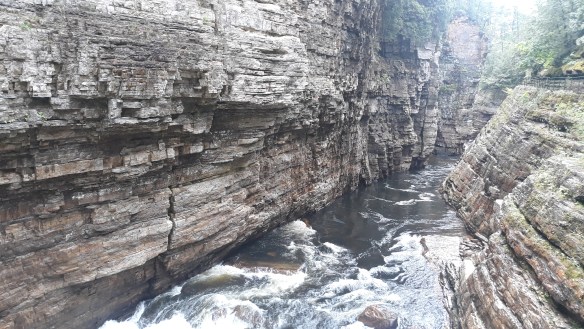Looking back at Earth when we’ve been gone for 10,000 years, what would we really think about the planet then?

We came from that place? That’s what the stories are about? Impossible to believe. I mean, sure it’s cute…but really?

Half thoughts come to me as I waver between sleep and playing word games. I have been left alone. No one is coming to find me. I will stay like this.

These tiny bits percolate from my subconscious – or so I decide – unbaked nonsense. My foot twitches, a muscle in my left shoulder. I am still on the dock, the paint can hot in the sun. I am watching Maude and then a Japanese superhero show. The color goes in and out.

I am asleep for the briefest of moments and trying to remember. You’re jealous. You hate it. Phrases like that by an odd voice in my head. Who is that? It isn’t me. My thumb gets tired. I text badly like this. I am falling asleep again. I almost drop my phone and type that. I should do something. I really should.
I had both knees replaced two years ago. I walked three steps the day after surgery and down the hall the day after that. I went to physical therapy twice a week for the following year during which my flexion and power was repeatedly pushed.

I went on my annual Alzheimer’s Research fundraising hike one full year after surgery and was exhausted within an hour. My knees were not working like I expected. I was disappointed and angry, realizing that my knees were never going to be what I wanted them to be.
I continued with my workouts over the next year – stationary bike and exercise ball – and headed out, a little anxious, for another fundraising hike this past month. It was remarkable how much my knees had improved – flexion, power, stability, the works.

Incremental change is impossible to detect from one day to the next. But then, seemingly out of the blue, mountains are climbed. It just took some pain and patience.
I dive in, immediately nervous, thinking of doing a hard turn back, but I force myself to drift, my nose just out of the water, and look down at my feet dangling into the murk. It is thick with sediment, shafts of light trying to break through and failing in the deep, deep brown.

White smudged lines appear, a birch tree that fell into the water last year, a nightmare place made worse by the fish that drift past. I pull my feet up and clamber onto the raft, and I am on it and then I’m not. It sinks and then shoots out to the side, breaking the surface like a shark, leaving me to sink back into that awful abyss.
As I mentioned yesterday, I don’t engage well with fiction that verges on therapy, where the voice is exhaustingly self-centered. Even if the work conveys immediacy or suggests raw documentation, this too often comes across as tedious, much like the bastardized fictions that are sprouting on TikTok and Insta, the faux confessional of the “look-at-me” generation.



I’m much more intrigued in the crafting of narrative, where the story moves forward and characters express. “You must remember to paint the walls”, my workshop leader reminded me. “Linger in the moment. Allow your reader to look around.”

I was actually stunned by her comments. How wasn’t I doing that? As my work tends toward the cinematic – dialogue and visuals – I thought I was already doing this. However my perspective does tend to race from start to finish. Linger? No, I didn’t really do that. Explore the interiority of Dee Sinclair. That was the thing. Picture and paint, so that I can draw the reader in to believe in going to another planet.
Writing is a personal thing, no doubt about that. Write who you are. Write what you know. The willingness to explore yourself is the essence of the process. Writers commune to learn – and steal – from others, to develop in their ability to communicate. Work is developed at writing workshops, feedback offered on anything from how the text could be restructured to phrasings reconsidered as well as lines and ideas that are to be praised. Does the piece work? That’s the thing. The craft of writing is what writers help each other with. That’s it.
But then, given that writing is personal, therapy tends to bleed into the scene, which is highly problematic given that writers are not therapists. The only qualification to attend a writing conference is the ability to write. Nothing else. Truth be known, writers tend toward the asshole end of the spectrum and are often the last people to look to for empathy. And yet when a writer shares intensely personal pieces, the conversation focuses almost exclusively on the psychological aspects, the therapy of it.
When I think about real trauma and terror – those who have been victimized by hate crimes or survived war and famine – the issue is not the prose but the process of getting better. They are just surviving. And writing is clearly an effective tool for that. But that is not the work to be shared in a workshop because there is nothing that anyone can do except offer a sympathetic nod and talk about bravery. And what good is that? (Speaking as a writer who tends to the asshole end of the spectrum.)
I was surprised at how much the writing conference felt like camp. Camp, of course, does have its positives: being outside, the games and chatting with new friends. But there’s also the other side, with the tiny beds, cafeteria food and Kumbaya energy.
Each writer is placed into a focused group for the week with whom generative work is shared and discussed every morning. However in the evening, all of the groups come together to attend readings where each writer takes a turn in presenting their work to an audience. And this is where the groups become competitive, trying to outcheer one another. For me it had the opposite effect, as the hoots and hollers did not appear to be about supporting the writer, but in trying to win some kind of enthusiasm badge.
It was an odd tenor for me, given that writers tend toward introversion, which maybe was the point, a chance to be kids again. But I couldn’t help but think it’s time for me shout out, “Seriously!?” and see what they do with that. But I didn’t. I was afraid of censure. And even now, in writing about this, I think about that.
I arrived at Kenyon College for a week-long writing conference. As I blogged yesterday, my thoughts going in were not very positive. When I arrived, it just got worse.

The writing prompt on our first day was “My worst decision…” It seemed easy to write about but the thought process led me down angsty alleys. It wasn’t so much that I was nervous about exposing my dumb-ass life, more so that it didn’t seem interesting writing to me. I wanted to do process writing for my book, Anori. That was the thing.

I was in a bad place when I listened to the readings by our workshop leaders that night. I thought about leaving the conference. I had nothing in me. It seemed utterly futile. I did write something eventually, but it was bad, a transcription of bland dialogue. I had someone read it who admitted that it was empty. My fears were confirmed. I would leave.

Then she made a suggestion for a framing device, which got me thinking. I thought about it as I watched a series of tornadoes blow that night and wrote in the morning, adding details like The Starfish Room, Fun Lovin’ Criminals and the bent peel coming a mini bottle of champagne bottle. It wasn’t that great, but it was something. And I wasn’t dead. Not yet.

First, I dream up something in my head, a moment or a line like “I like that they like you.” That’s where I feel like a baby shaman. I make it into words, a little doll house as it were. I am proud of it. And then I think about it and kill it. It stinks.

I dream another thing like “gun laws around here”, and build again. I feel a better shaman now, almost through adolescence. I kill it again. It’s worse than the first, a foul mutant.

I think more about the dream of the thing, the essential little lines and light and capture what I can of that. I mean, I’ll kill it later. Just not now.

I have been struggling with the shade of blue for the Infinity Corporation logo for years now. There are many shades of blue: baby, sky, cobalt. And then I realized that the right shade of blue would have to be the darkest one of all, hedging toward black, the color of the deep ocean, the only color that might appear in the void of space. And that is Midnight Blue.

Also of note in today’s writing was the naming of the Lunar colony (New Phoenix), the ship (Umiariak) and their news channel (Mina).
Social Widgets powered by AB-WebLog.com.